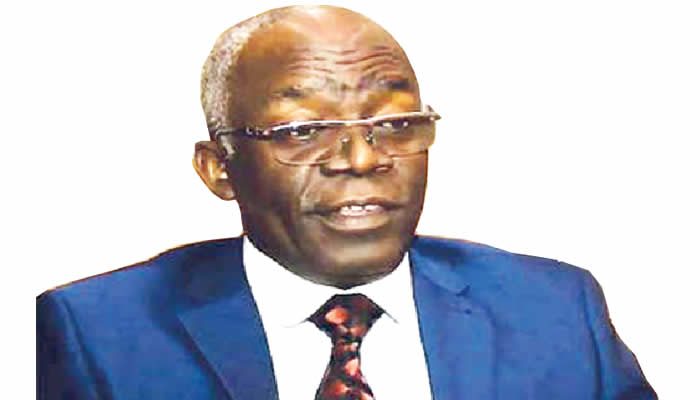Femi Falana, a human rights lawyer, expressed his support for the planned protest at the Nigerian Electricity Regulatory Commission headquarters and offices of the Electricity Distribution Companies nationwide on Monday. The protest is against the rise in electricity tariff.
The Nigeria Labour Congress and Trade Union Congress had previously given NERC a deadline of May 12 to revert the electricity tariff to N65/kwh or else face protests at its commission and DISCO offices across the country.
In a letter signed by NLC President, Joe Ajaero, and TUC counterpart, Festus Osifo, the unions instructed their state branches and affiliates to prepare for the protests if the Federal Government and NERC ignore their ultimatum.
In response, Falana argued that the planned protest is justified and is allowed under Nigeria’s Labour Act.
The Senior Advocate of Nigeria endorsed the planned protest during an appearance on Channels Television’s Politics Today on Sunday.
He stated that NERC did not follow the correct procedures and failed to involve the stakeholders before making the unpopular decision.
He explained, “Picketing is provided for under the Labour Act in Nigeria, and that is what the Labour centers will start tomorrow. They will picket NERC’s headquarters and DISCO offices to voice their opposition to the unlawful increase in electricity tariff.
“This is because the Nigeria Electricity Regulation Commission did not follow due process and did not hold a public hearing as required by the Electricity Act 2023. I hope NERC will engage in discussions with the Labour movement and consider reversing the tariff hike.
“Furthermore, the increase was based on the assumption of regular electricity supply for at least 20 hours. However, this has not been the case. If DISCOs cannot provide adequate electricity supply, people should not be expected to pay the increased tariff.”
Moreover, the senior lawyer expressed concern that it would be unjust and insensitive for any government to provide inadequate electricity and still demand payment for electricity tariffs.
He also expressed displeasure with the situation, stating that privatization has clearly failed in Nigeria.
“According to Section 116 of the Electricity Act 2023, an increase in tariff can only be justified if there is improved electricity supply. There must be evidence of electricity supply improvements. However, if Nigerians still have to rely on generators due to inconsistent electricity supply, it is hard to justify the increase.
“Additionally, when they talk about unbundling, as far as I know, most of the DISCOs were acquired by the government due to their problematic debts. At the time of the distribution and sale of the DISCOs in 2013, that sector became self-sufficient, and the government was no longer subsidizing it.
“We need to figure out what happened between then and now. If the government is considering unbundling again, it needs to have discussions with the workers and involve them in the decision-making process in the country. This is because privatisation has failed significantly in Nigeria. I recall the Senate has urged the government to take back all the DISCOs and assume strong control.
“We can't raise tariffs when the majority of our people are living without electricity. I'm not just referring to those in Band B, C, and D. Right now, we're only concerning Band A, and there's no justification for such discrimination.”



